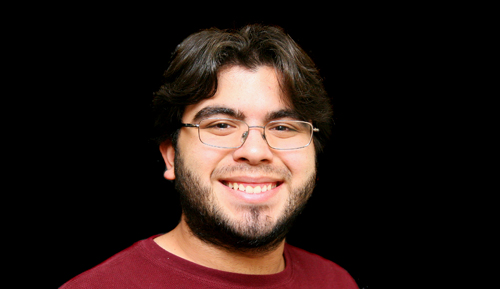In 1983, Rev. Ignacio Ellacuría, S.J., Jesuit and rector of the University of Central America, pronounced in the commencement address for Santa Clara University, “We, as an intellectual community, must…educate professionals with a conscience, who will be immediate instruments of transformation; and continually hone an educational institution that is academically excellent and ethically oriented.”
Sounds familiar, doesn’t it?
It doesn’t take more than one semester in Loyola to see that we have much in common with Ellacuría’s vision of higher education.
This expression of the Jesuit mission, a mission extant now for 400 years, binds all of us who attend Jesuit universities today.
On the night of Dec. 17, 1989, a death squad of over twenty soldiers raided the Jesuit residence of the University of Central America and executed the six priests who lived there, including Ellacuría.
The squad also killed their housekeeper, Elba Ramos, and her 16-year-old daughter, Celina.
That day, the quad that we now know as the “Peace Quad” in our campus was dedicated to these martyrs.
The massacre was carefully planned by the Salvadorian military regime.
Of the 26 soldiers later implicated in the murders, 19 were graduates of an institution located in Fort Benning, Ga., called The School of the Americas.
This military school is dedicated to training Latin American soldiers in the arts of military strategies, including executions and torture. Moreover, the school is funded by our taxpayers’ dollars.
Throughout the ’80s, when the military regime was in power in El Salvador, committing countless massacres and human rights violations such as the one described above, over one-third of the students in the School of the Americas were Salvadorian.
In 2001, human rights groups called for the closing of the school for years, and a vote is held in Congress to close the school; by 10 votes, the SOA was not closed.
Instead, it was renamed the Western Hemisphere Institute for Security Cooperation.
Under the guise of this new name, the school’s faculty claims that it has changed.
Yet, has the school changed?
From 2002 to 2006, as paramilitary groups in Colombia (supported by the Colombian government) committed more human rights atrocities, the highest number of students in the school was Colombian, comprising 42 percent of the school’s student population.
This year marks the 20th anniversary of the martyrs of the University of Central America, and the SOA is still open.
Every year, students from Loyola and other Jesuit universities get together and, in a protest that is still held today at the gates of Fort Benning, commemorate the deaths of all the victims of Latin America’s reigns of oppression.
We commemorate those like Ellacuría and the other Jesuits, whose lives were cut short under these reigns of injustice.
As a speaker chants the names of the victims into the microphone, 20,000 people respond in chant, “Presente.” More than a thousand names are called.
In English the word is translated as “present.”
With a spirit of compassion and in solidarity, we choose this day not only to cry out against violence and to mourn for victims of oppression, but also to celebrate the union that binds us beyond borders of nationality and ethnicity: love.
And through love, we achieve an authentic presence with our Latin American brothers and sisters, chanting in unison: “Presente.”
Rolando Lopez is an English writing sophomore and a coordinator for this year’s protest.
He can be reached at [email protected]
In My Opinion is a weekly column open to any Loyola student.
Those who are interested can e-mail
[email protected]







